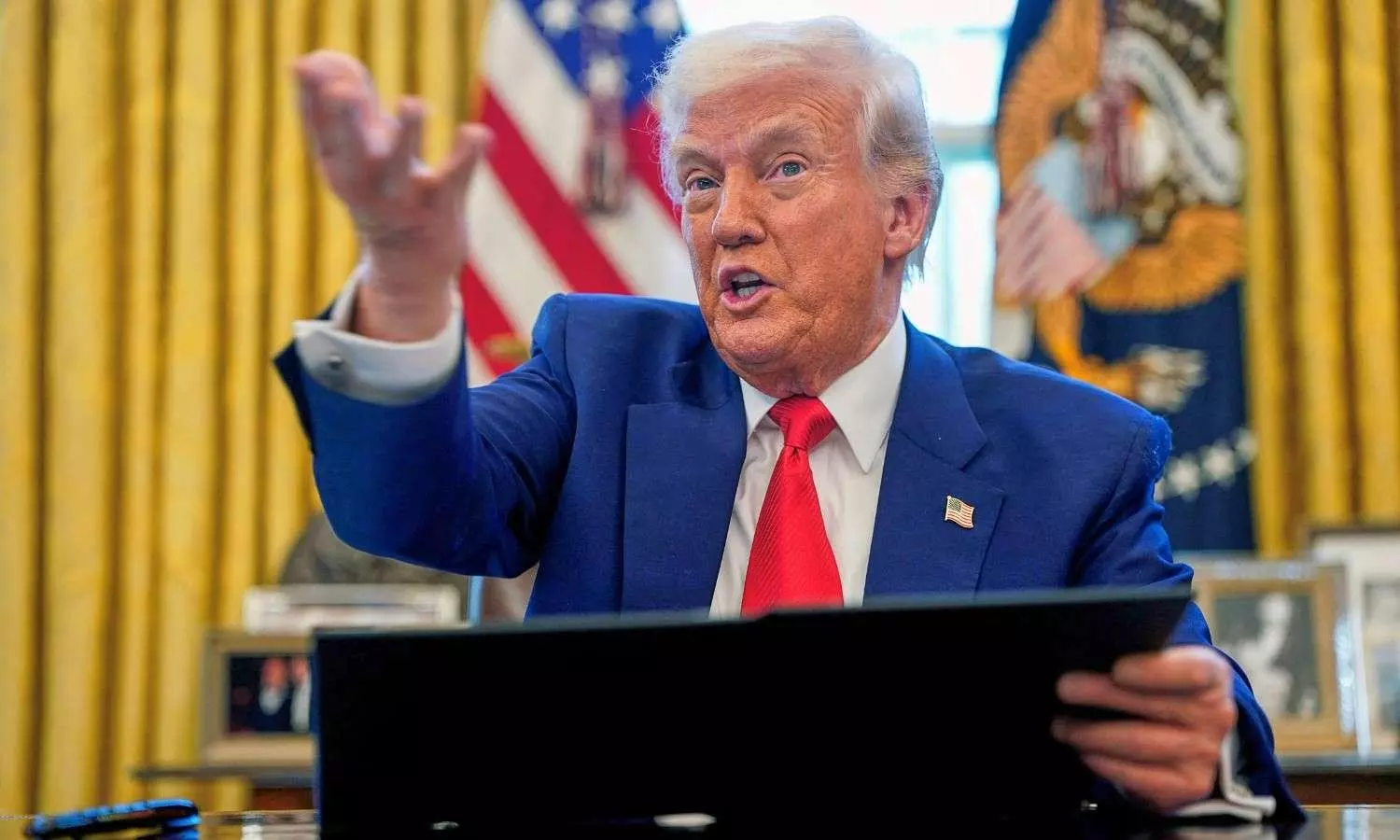
India mulls retaliatory tariffs as US rejects its WTO notice: Report
India may now retaliate by suspending concessions given to American imports and levy higher custom duties on metals coming from the US, said the report

India is weighing retaliatory tariffs on American imports after the United States dismissed its May 9 notice at the World Trade Organization (WTO).
India's notice had challenged steep US import duties on steel and aluminium that were imposed on the grounds of national security, and proposed retaliatory action.
Washington, however, argued that these were not “safeguard measures” and therefore declined any discussion with New Delhi on the matter, said a Hindustan Times report quoting people in the know.
Also Read: GDP growth likely to slow down due to global uncertainty and tariff war
India's notice to WTO
Tensions escalated after the Trump administration doubled tariffs on the metals to 50 per cent on May 30, effective from June 4.
India’s original notice to the WTO had flagged the US decision on February 10 to impose 25 per cent levies on all imports of steel and aluminium effective from March 12.
Against the US measure to hike import duties, India on May 9 formally notified WTO that it could suspend “concessions and other obligations” granted to the US, possibly from June 8.
“The safeguard measures would affect US$ 7.6 billion imports into the United States of the relevant products originating in India, on which the duty collection would be US$ 1.91 billion. Accordingly, India’s proposed suspension of concessions would result in an equivalent amount of duty collected from products originating in the United States,” India’s notice to WTO said.
Also Read: Vance says trade deal soon with India, calls Modi 'tough negotiator'
America's response
The US responded to India's notice on May 22, telling the WTO that India’s proposed retaliation was not consistent with the multilateral trade rules.
“There is no basis for India’s proposal to suspend concessions or other obligations under Article 8.2 of the Agreement on Safeguards,” Washington stated.
The US, however, maintained at WTO that its tariffs on steel and aluminium are based on national security considerations and not “safeguard measures” as claimed by India.
“The United States will not discuss the Section 232 tariffs under the Agreement on Safeguards as we do not view the tariffs as a safeguard measure,” the American communication to the multilateral body added, said the report.
Also Read: UN forecasts slower global economic growth following Trump's tariffs, trade tensions
Indian retaliation
Though there is no official response from the Indian commerce ministry on the matter, people in the know said in the HT report that India may retaliate unless the US agrees to a preferential treatment for India on these metals, under the ongoing talks for an early deal within the proposed Bilateral Trade Agreement (BTA).
India may retaliate by proportionately suspending concessions on key American exports — especially agricultural products like almonds and walnuts — and hike duties on metal imports from the US.
Both countries are reportedly making efforts to conclude an early harvest deal by this month and a negotiating team from the US is expected to visit India this week.
Also Read: IMF on Trump's tariffs: US, global economic outlooks have worsened
Indian stakes are high
Experts highlighted how the Trump administration's steep import tariffs on steel and aluminium have direct consequences for India.
In FY25, India exported $4.56 billion worth of iron, steel, and aluminium products to the US. Of this, $3.1 billion were articles of iron or steel, $860 million in aluminium-related items, and over $587 million in raw iron and steel exports.
“These exports are now exposed to sharply higher US tariffs, threatening the profitability of Indian producers and exporters,” said Ajay Srivastava, former Indian Trade Service officer and founder of the Global Trade Research Initiative (GTRI), to Hindustan Times.
History of friction
This is not the first such standoff. In 2018, the Biden administration had imposed a 25 per cent tariff on certain steel and a 10 per cent levy on aluminium items on grounds of national security.
India retaliated in 2019 with higher duties on 28 American goods and filed a WTO complaint. Later, the two sides, however, decided to resolve the dispute amicably through a Mutually Agreed Solution (MAS).
Under the agreement in June 2023, the US agreed to grant market access to steel and aluminium products under the exclusion process of Section 232 of the Trade Expansion Act 1962.
India also agreed to roll back retaliatory tariffs on certain American products.

